By Dune Lawrence | March 16, 2016
Photograph by Christaan Felber
I saw the photo first, me in a bloody wash of red with “RACIST” pulsing over my face. A couple of clicks brought me to this:
“In the darkest shadow of Bloomberg’s glossy office building in Manhattan, you may find a woman by the name of Dune Lawrence—a ‘journalist’ who has built a career on writing salacious articles about China.”
That was my introduction to TheBlot, a website I hope you’ve never heard of. The article went on and on: I’d been kicked out of China for poor job performance and eked out a living on minimum wage. My appearance was ravaged by “years of consuming hormone-packed fried chicken and stressing over money.” Now, I’d found a way to save my sinking career by writing negative articles about China and taking kickbacks from short sellers. In a cinematic scene set at Kentucky Fried Chicken, this Internet version of me laid out a strategy: “ ‘Bashing the Chinese could be a profitable niche for me,’ Lawrence said to a source while biting off a juicy chicken leg quarter at KFC. ‘The Chinese don’t vote, the Chinese don’t sue people, they just sit there taking the s—. How much better can it get? I am making a living out of it!’ ”
It was difficult for me to keep reading. In addition to all the lies, the story was laced with creepy sexual imagery: I’d had my “panties ripped off” and was like “a dog wagging her tail trying to attract a mating partner.” I felt overwhelmed; it was as if something heavy were pressing into my forehead. I wanted to fight back, and I also wanted to hide. I haven’t been able to do either.
The story, published on Jan. 8, 2014, had the byline “John Sterling.” The site’s other articles were an odd mix of celebrity gossip, entertainment news, and stabs at reporting on serious topics such as drug marketing. It wasn’t exactly high journalism, but it looked professional, not like some amateur blog. Google seemed to think so as well, because the story instantly went to the top of the results when I searched my name.
In September 2015 the FBI arrested the man behind TheBlot, one Benjamin Wey. Not for smearing me or the other people he imagined were his enemies. He’s primarily a financier, and he was charged with securities fraud and other financial crimes involving Chinese companies he helped to list on U.S. stock markets. The U.S. Department of Justice alleges Wey pocketed tens of millions of dollars in illicit profits that he funneled through associates overseas and back into accounts in the U.S. Wey denies the charges. A trial has been set for March 2017.
Meanwhile, TheBlot’s lies about me still pop up online. The same is true for a young woman who won an $18 million judgment against Wey and his companies for sexual harassment and defamation, a journalist who wrote about her, a retired Nasdaq official, and a Georgetown University law professor. As Wey, 44, awaits trial, he regularly posts Blot articles calling all of us, and others, frauds, racists, and extortionists. He’s found a way to exact revenge with few consequences, and he’s milking it.
I met Wey in September 2010, when he sailed into the Bloomberg offices for an interview. He wore a suit, and his black hair was short and slick. He maintained a studied smugness, as if his publicist hadn’t e-mailed me cold to pitch the visit. I was a reporter who’d recently lived in China; Wey wanted some positive press for his business helping companies there raise money here.
Everything about him seemed rehearsed, from his posture—chin down, fingers tented—to the way he used my name in almost every sentence. China’s economy was growing at roughly 10 percent a year, and Wey portrayed this as a sort of personal validation. “The philosophy is very simple,” he said. “If you believe China is going to continue to grow as it has, who’s going to bridge the gap between the two countries?” The answer, obviously, was Benjamin Wey.
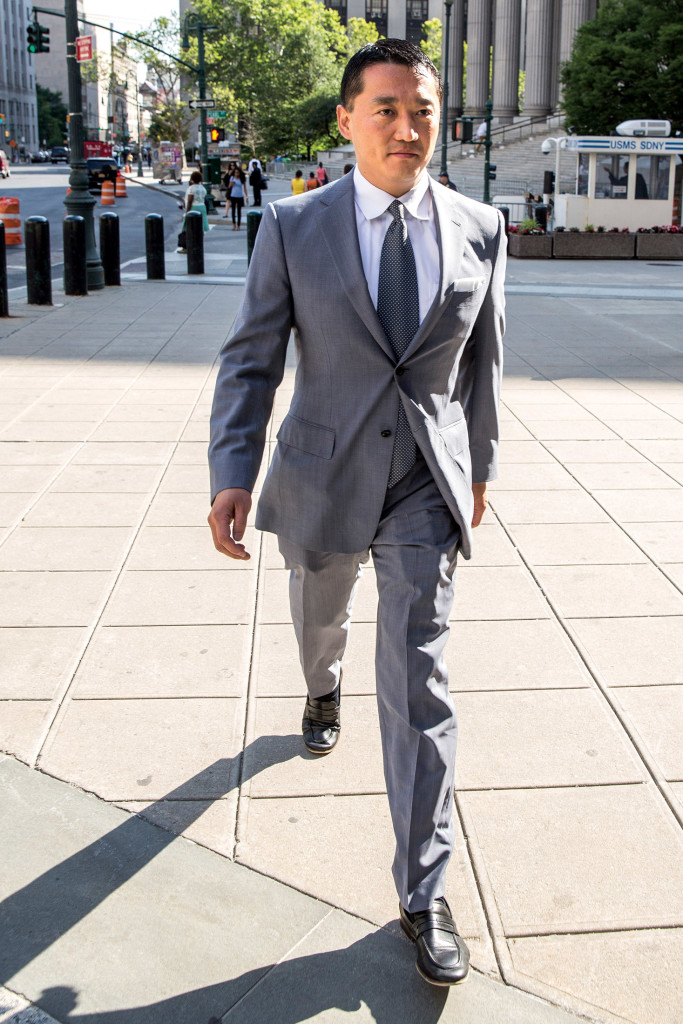
Wey outside the Manhattan courthouse, where he was found liable for sexual harassment and defamation. The $18 million judgment remains unpaid. Photographer: Natan Dvir/Polaris
Still, the life story Wey sketched for me was fascinating. He said he’d arrived in the U.S. from China in 1992 with $62 in his pocket, then bootstrapped his way to Wall Street riches. A few years after our meeting, Wey would tell a longer version of the story in a document he claimed was a business school case study. His father died when he was 10, the story went, leaving his mother to raise him alone on $120 a month in the northern Chinese city of Tianjin. Wey considered English the key to his future. He rose at 5 every morning to study, then biked 90 minutes to school, all the while reciting English phrases. One day it paid off: He struck up a conversation with a foreign couple on a bus. They hailed from Texas—a word that had an almost mystical ring to him. This chance meeting led him to college at Oklahoma Baptist University.
Success followed success. First, he founded and ran a campus catering company with a gross profit margin of some 95 percent. Next, while still at school, he brokered shipments of silk boxers, Brazilian sugar, and Russian fertilizer. After graduating, he got himself hired as a China adviser at Ashton Technology Group. It’s hard to know what to believe in Wey’s “case study,” but he did work at Ashton.
In the late 1990s he opened a consulting business with partners in Beijing, and in 2003 he founded New York Global Group (NYGG). That’s the business Wey was promoting when I met him. NYGG advised mostly small and midsize private Chinese companies looking to list in the U.S., Wey told me. He emphasized that he turned away 99 percent of potential clients. Staff accountants, he said, performed as much as 11 months of due diligence, and then, for companies deemed worthy, NYGG engineered mergers with “shells”—companies that are all but defunct but still publicly listed. Such a transaction, called a reverse merger, transformed the Chinese entity into a U.S. public company overnight. Hundreds of Chinese companies had taken this route—and so, Wey pointed out, had Berkshire Hathaway and Texas Instruments.
Wey was saying one thing about Chinese reverse-merger companies, but the market was saying another. Short sellers were raising doubts about the accounting at many of these companies, and shares in some were falling. Wey was an assertive defender of the companies and accused the shorts of illegal market manipulation. I’d read up on Wey and knew he’d had his own regulatory issues: The state securities regulator in Oklahoma had accused him of failing to tell clients about his consulting relationships with companies whose shares he was touting. Wey was censured and agreed to a ban from the securities industry in the state, without admitting or denying the allegations.
I met with Wey again in November 2010, and the next January I wrote a story for Bloomberg Businessweek about short sellers and Chinese reverse mergers. It mentioned Wey and NYGG. In January 2012 the FBI searched NYGG’s office. Wey wouldn’t comment at the time, and the FBI didn’t give any details.
After that, I heard only occasional news of Wey. A friend who’d read my stories on reverse mergers mentioned meeting him. In September 2013 the friend showed me a group e-mail Wey had sent saying he was an alumnus of Columbia Business School and touting the case study about himself. Columbia had published it, Wey wrote, and was planning to use it “in the training of global leaders for years to come.” The attached document, titled “Benjamin Wey: Global Entrepreneur,” appeared to be on letterhead from Columbia’s CaseWorks series and listed a Columbia Business School professor and Wey himself as the co-authors. This was the story that included such details as the 90-minute bike ride to school and the nice couple from Texas.
The study is not a Columbia publication, according to Christopher Cashman, a spokesman for the business school. “The document you have is not a case study and was not published by Columbia Business School,” Cashman wrote in an e-mail. “In fact, no research or case study about Mr. Wey has ever been published by Columbia Business School.” The professor credited as Wey’s co-author declined to comment.
The document opens with Wey waving goodbye to his Columbia classmates on their last day together. They’re headed toward the subway, while Wey hops in his Maserati to get back to Wall Street. The rest of the narrative mostly sticks to Wey’s personal triumphs; it does touch on the Oklahoma trouble, describing it as politically motivated and saying Wey accepted the censure because he was no longer doing business in the state. Still, the story notes, news of the censure gave his enemies fodder. The lesson, Wey quotes Wey as saying, is that “perception matters more than facts or reality.”
By the time Wey distributed his case study, I was working on a story about a former client of his: AgFeed Industries, a Chinese animal-feed company embroiled in bankruptcy, a shareholder lawsuit, and a U.S. Securities and Exchange Commission investigation. Wey didn’t respond to my calls or e-mails. I reconstructed some of his involvement from Internet searches and turned up a press release from NYGG saying it had helped AgFeed raise $86 million in the U.S. My story came out in December. Less than three months later, the SEC sued AgFeed and its Chinese executives for allegedly fabricating revenue from 2008 to 2011. The company settled without admitting liability and agreed to return $18 million in illicit profits.
Wey e-mailed me on New Year’s Day 2014. He said he was seeking comment for a series of investigative articles about short sellers and fraud, and he had a list of questions for me. Here’s a sample. (All correspondence from Wey in this story is presented as he sent it, uncorrected.)
“If you have no business background and neither have you obtained any education in the field of accounting of business, how could you have derived conclusions on your own involving complex global business matters mentioned in your various articles?”
“We were told you were ‘emotionally scarred’ while living in China and you are racially biased against the Chinese people. Is it true?”
“Sources told us that you have an active business activities outside your Bloomberg employment. What are those business activities? How are you able to support your lifestyle? What compensation have you received from stock short sellers, hedge funds, and other tabloid writers?”
He ended with: “This is the time for you to come out clean, Dune.”
I didn’t respond. He followed up two days later with additional prompts, including “Sources told us you have gained a lot of weight due to stress.”
Wey had already started tweeting that I was implicated in “massive frauds.” When Bloomberg’s lawyers sent him a letter telling him to take down the tweets and stop defaming me, he fired off another long e-mail. “You are a tabloid writer, a sensational woman, a total loser with absolutely no sense of morality,” read the message, which nonetheless went on to say that “this is just the beginning of endless efforts to express our opinions forever, and continues the debates of our differences in civility.”
I knew something was coming, so I kept Googling my name and Wey’s name to see what it would be. That’s how I discovered my star turn on TheBlot.
I was rattled for days. I couldn’t focus on a story I was reporting about—as it happens—online privacy and anonymous browsing. Still, some things struck me as absurdly funny. Wey tried to drum up traffic to the story with a tweet claiming I was implicated in a “new Bernie Madoff fraud.” His e-mails, which kept coming, referred to “twits” instead of tweets and to Bloomberg’s outside law firm, Willkie Farr, as Wilkie Fart.
Wey’s name wasn’t on the story, but he wasn’t trying too hard to cover his tracks. The website’s terms of use identified theblot.com as part of FNL Media, which a copyright form placed at the same office address and floor as NYGG.
As I looked into how to get Wey’s vile material off the Internet, I saw that FNL’s business registration listed Holland & Knight, a respectable law firm, and a firm partner, Neal Beaton. That gave me some hope—maybe someone there would be willing to talk sense into Wey. I reached out through Bloomberg’s lawyers. The message came back—sorry, can’t help. (Holland & Knight says, through a spokesperson, “Our involvement with FNL Media was only in relation to the formation of the company in 2013.”)
I had no better luck with the companies Wey used to spread Blot posts. The site had a Facebook page, and Bloomberg’s legal team tried to get Facebook to remove references to me. No response. (The “RACIST” photo was in TheBlot’s photo stream when I checked as I was writing this story. I reported it and got an automated response saying Facebook would remove anything “that doesn’t follow the Facebook Statement of Rights and Responsibilities.” It’s still there.) When I complained to Twitter that Wey’s account was abusive, I got a response from Twitter Trust & Safety, telling me Wey wasn’t violating Twitter’s rules and to block his tweets so I couldn’t see them. I sent in more examples of Wey’s tweets, and Twitter suspended his account. He was back in less than three weeks. Someone opened a Twitter account impersonating me. The only follower was Benjamin Wey. Twitter did block that one.
My husband was enraged and impatient: Couldn’t we do something? How could this guy be allowed to get away with this? My mother worried this was all just a prelude to something worse—violence, physical harassment. I soothed them the best I could, and I kept looking for help.
Friends and colleagues told me appealing to Google was pretty much hopeless, and I found that to be true. I couldn’t figure out how to report the stories as defamatory, although there was a “report images” option that I’ve been using to no avail for two years. Later, Google forwarded me its official policy. In the U.S., the company removes search results from its index only in very specific situations involving images of child abuse, copyright infringement, or exposure of sensitive information such as Social Security numbers. Google will also respond to a court order identifying pages or content as defamatory.
I didn’t sue for defamation. I talked to people about it, and all of them told me the same thing: It would be long, invasive, and horrible, and Wey would likely use the opportunity to further attack my privacy and reputation.
Wey kept at his trolling, with at least four more stories devoted to me, plus references in posts about his other targets. Whenever a new image of me came online, a Blot article followed, with the same insults stamped over the image: FRAUD, DUMB, RACIST, INCOMPETENT.
There were real consequences. My husband and I were turned down for homeowners insurance; the underwriter told my husband I was “high-profile.” I traded cards with another journalist at an event, and the next day he e-mailed to ask what the heck I’d done to make anyone so angry at me. I felt as if I had a dirty little secret. I’d forget, and then moments like that would upset me again. Not many people bothered to ask for my side of the story. Maybe that was because not a lot of people saw the Blot stories—the entire site got only 50,000 views a month. But I imagined people I contacted for work, especially native Chinese, coming upon the Blot posts. How many of them would return my calls or e-mails?
I wasn’t the first person accused of racism on TheBlot. Before me, there was Michael Emen, a Nasdaq official. In 2011, Nasdaq delisted a Wey client called CleanTech Innovations. (The decision was overturned by the SEC in July 2013 after the company appealed.) A piece labeled “opinion” appeared on TheBlot focusing on Emen’s role, alleging abuse of his powers, discrimination, and racial profiling. “Michael Emen Reveals Racism at Nasdaq” is still at the top of a Google search on his name.
Similar “investigations,” as they were tagged, began to appear regularly on TheBlot. The attacks reflected Wey’s obsession with what he saw as the unfair treatment of Chinese companies by the U.S. media and regulators. TheBlot went after Roddy Boyd, a freelance reporter who’d doggedly analyzed accounting irregularities at U.S.-listed Chinese companies; Jon Carnes, a short seller; Francine McKenna, who wrote about AgFeed on her accounting-focused blog; and a pair of Barron’s reporters who’d covered reverse-merger companies and Wey’s business. The accompanying graphics grew coarser and coarser, including photos of toilet bowls full of feces.
TheBlot found a new target in July 2014, a Swedish woman named Hanna Bouveng. She met Wey at a party in the Hamptons in 2013. Not long after, he offered her a job at NYGG, a visa, and a chance to stay in New York. She accepted. A lawsuit she later filed alleged that Wey, who was married with children and almost 20 years her senior, pursued her relentlessly, buying her tight clothes that he asked her to wear at the office and forcing her to share a room with him on business trips. Eventually, the suit said, she slept with him, and when she declined to keep doing so, he fired her. Bouveng sought $850 million in damages.
TheBlot spewed out inflammatory articles and lurid illustrations about Wey’s latest enemies: Bouveng, her lawyers, her friends, even a New York Daily News reporter who wrote a brief item about the lawsuit. Just a sample of the headlines:
“Op-Ed: Hanna Bouveng, Cocaine User Caught with Cocaine and Gun Criminal, Swedish Shame”
“Bank Fraud Dooms Morelli Alters Ratner Law Firm, Bankruptcy, Lawsuit Charges, FBI Investigates”
“Barbara Ross, Racist NY Daily News Writer Fabricated Judge’s Order, Prejudiced Journalist Benjamin Wey”
Bouveng’s lawyers tried to persuade the judge in the case to stop Wey from continuing to publish defamatory articles, asserting that they amounted to retaliation and witness intimidation. Wey’s lawyers argued that this would infringe on Wey’s right to free speech. The judge didn’t rule on this aspect of the case until after the trial was over, when he said the money judgment made it a moot point. Many of the stories remain online, updated with new material.

Bouveng is “pleased that the U.S. government is pursuing a criminal case against Wey,” says her lawyer. “He will ultimately get what he deserves.” Photographer: John Marshall Mantel/Zuma Press
The trial became tabloid fodder as Bouveng testified about her sexual encounters with Wey. (From her testimony: Q. Did you kiss him? A. No. Q. Did you hug him? A. No. Q. Did you reciprocate in any way? A. No. Q. How long did it last? A. A few minutes.) For Blot watchers like me, it also revealed Wey’s methods. He really had established a website, hired writers, and published articles just to have a platform for his attacks. The site’s former editor-in-chief testified that all Wey really cared about were the pieces on his enemies and that he tacked on comments under fake names to push the articles further up in search results.
A jury awarded Bouveng $18 million last June. She has yet to receive any money, according to one of her lawyers, David Ratner. Wey’s tweets after the verdict in Bouveng’s lawsuit spun defeat into victory: “#GRATIFIED #financier @WeyBenjamin DEFEATS #extortion #hannabouveng FALSE sexual assault, retaliation claims, VICTORY.”
Ratner sent me a comment from Bouveng, saying she is “pleased that the U.S. government is pursuing a criminal case against Wey. He will ultimately get what he deserves.”
On the day of his arrest in September 2015, Wey appeared in federal court in Manhattan to hear the charges: securities and wire fraud, conspiracy to commit securities fraud and wire fraud, failure to disclose ownership in excess of 5 percent of companies’ stock, and money laundering. Wey manipulated Chinese companies and investors, according to the Justice Department, taking hidden stakes through family members and front companies, then manipulating trading in the shares to benefit himself and his family. The indictment outlines how he allegedly took a cut of almost every transaction as he shepherded companies such as Deer Consumer Products and CleanTech to U.S. listings. He owned hidden stakes in the shell companies used for reverse mergers, which then became shares of the new entities. He hid these stakes in offshore entities, through which he parceled out stakes to friends and family to boost the number of shareholders to the threshold required for a Nasdaq listing. He also used these offshore entities to conduct fraudulent trading, at times artificially inflating share prices and then selling to generate millions in profits. He caused stock and profits to be transferred overseas through accounts in Switzerland and Hong Kong. (Wey’s Geneva-based banker, Seref Dogan Erbek, was also charged. He is at large.) The money returned to the U.S. and eventually to Wey, often, the indictment says, as nontaxable gifts to Wey’s wife, Michaela.
On Sept. 15, Wey pleaded not guilty to all charges. He’s also a defendant, along with his wife and several other people associated with NYGG, in a civil suit filed by the SEC at the same time as the criminal complaint. Wey and his wife haven’t filed a response in the SEC case and are seeking to have it stayed until the criminal case against Wey is resolved.
Wey is also battling lawsuits stemming from TheBlot. A Georgetown law professor named Chris Brummer sued him in April 2015. Brummer had the poor luck to be an arbitrator in a Financial Industry Regulatory Authority (Finra) disciplinary action against two brokers who sold shares of Deer Consumer Products without disclosing to customers that they were paid consultants for the company. Deer was a client of Wey’s. Finra barred the two brokers from working in the securities industry, and Brummer was on a panel that upheld the decision in 2014. Stories on TheBlot appeared promptly, pillorying Brummer as a fraud, calling him an Uncle Tom (Brummer is black), and accusing him of being involved in pump-and-dump stock schemes.
Wey responded to Brummer’s lawsuit with a motion to dismiss. It contends that Wey didn’t write the posts and that the suit is a “transparent attempt” to chill free speech, because no reasonable reader would interpret the articles as fact, rather than opinion. The motion notes that “it is undisputed that the Posts are available only on a sensationalist internet blog.” Preposterous though this might sound, especially given Wey’s regular declarations that he is an investigative journalist, it appears to be designed to cloak Wey and TheBlot in the mantle of the First Amendment and protected free speech.
Brummer wouldn’t talk to me, but one of his lawyers, Whitney Gibson, agreed to discuss defamation in the online era in general terms. Internet companies, he told me, are protected under a clause in the Communications Decency Act that says no provider or user of an “interactive computer service,” such as a website, a hosting company, or a search engine provider, can be held liable for third-party content. That allows companies to ignore the headache of arbitrating right from wrong and fact from fiction online, for the most part. It also leaves Brummer, and all of us, vulnerable to the likes of Wey, who disguised many of his attacks as stories submitted by anonymous readers. Decades into the Internet Age, there’s no surefire method to get defamatory material taken down if the person responsible for it is ready to put up a fight.
Earlier this month, Brummer’s lawsuit cleared a major hurdle: The judge ruled against Wey’s motion to dismiss and specified that Wey hadn’t shown the Blot articles should be protected under the Communications Decency Act. It’s a victory, though Brummer still has to prevail in the overall case—and in the meantime, the Blot articles stay up.
Almost everyone I contacted for this story, including Emen, Brummer, and others who’d been attacked on TheBlot, chose not to comment, and I understand that decision. What’s the upside? I know what the downside is: more attacks. It took me a long time to decide to write about my own experience, because I just wanted to avoid any more interaction with Wey. But I did have to give him a chance to comment for this story, particularly on the origin of the Columbia “case study.” I e-mailed the lawyers representing him in his various legal battles, and in less than three hours, I got a 1,600-word response from Wey. This is just a piece:
“Howdy! Ni Hao! Hello! I am Benjamin Wey—your old friend. You know me well so let’s get to the point. I am an independent investigative reporter and I like TheBlot Magazine (www.theblot.com)—Voice for the Voiceless, millions of readers a year. Investigative reporters are evaluating publishing new stories about you, your peculiar money entanglements with illegal stock short sellers (Roddy Boyd, Jon Carnes etc) as their bribed mouthpiece, your alleged extramarital affairs with a man calling himself ‘niu bi’—‘a cattle’s d—’—in Chinese on your own Twitter page, as well as your racist attitude towards the Chinese people. Because you just reached out to me again after two years of peace, you just did yourself a favor by reviving our interest in you. …
“You mentioned a non-published Columbia Business School research paper. I recall you and your sex partner Roddy Boyd collectively published a tabloid hit piece on this matter in 2013 in the NY Post. You said the Columbia paper was never published. Then how did you get a copy? How did you get hold of a draft Columbia University internal document? When and how did you hack into Columbia’s computers? How did you steal Columbia’s documents? Who else was involved in your theft? Come clean please so our readers can judge. How long have you been stealing documents from your employer? You know, theft is a pattern. …
“We have 18 more questions for you to answer. Each answer can be a separate, featured article. Dune, to save you time, let’s start with the above list. Okay? Our dealine for your answers is 5 pm, Feb 24, 2016. As it is said, ‘a thief remains silent’. If you do not respond, we will report to our readers such. …
“Donald Trump said the main stream media is full of dishonest people. I have to say I agree with him. You are one of those duckings feeling like some white swan. There is no swan lake in my life to dance around, okay? I know your tricks and how you ‘media’ people think. I am one of you, a fearless reporter and I have buckets and buckets of ink—more than you do. …”
I wrote this story because I have a platform to fight back. How can I, with the resources and reach of a global magazine, let him intimidate me? It’s my job to write about Wey. Still, I’m not looking forward to what’s coming next.
 Germany’s president has condemned the illegitimacy of Communist rule in East Germany and lauded the benefits of human rights in a provocative speech to Shanghai university students on Wednesday. Continue reading
Germany’s president has condemned the illegitimacy of Communist rule in East Germany and lauded the benefits of human rights in a provocative speech to Shanghai university students on Wednesday. Continue reading 
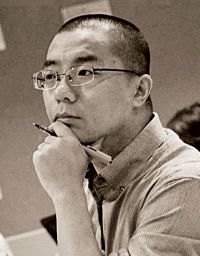 Jia Jia (贾葭) is a Beijing-based journalist and columnist who has worked for Oriental Outlook (《瞭望东方周刊》), iFeng Weekly (《凤凰周刊》) and GQ Chinese. For years he has been writing columns for the Southern Metropolis Daily (《南方都市报》), Beijing News (《新京报》) and Vista (《看天下》). You can read his blog at
Jia Jia (贾葭) is a Beijing-based journalist and columnist who has worked for Oriental Outlook (《瞭望东方周刊》), iFeng Weekly (《凤凰周刊》) and GQ Chinese. For years he has been writing columns for the Southern Metropolis Daily (《南方都市报》), Beijing News (《新京报》) and Vista (《看天下》). You can read his blog at 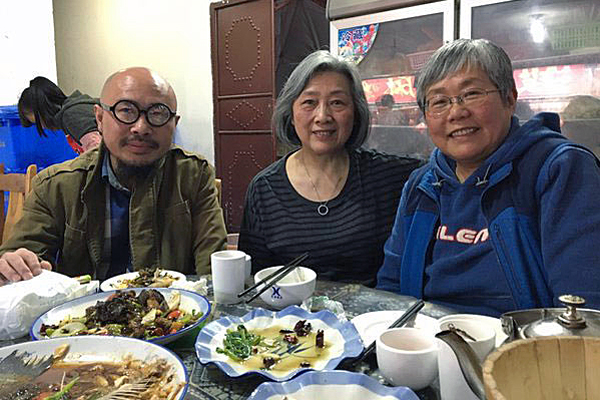
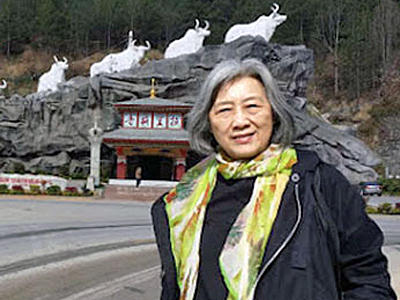



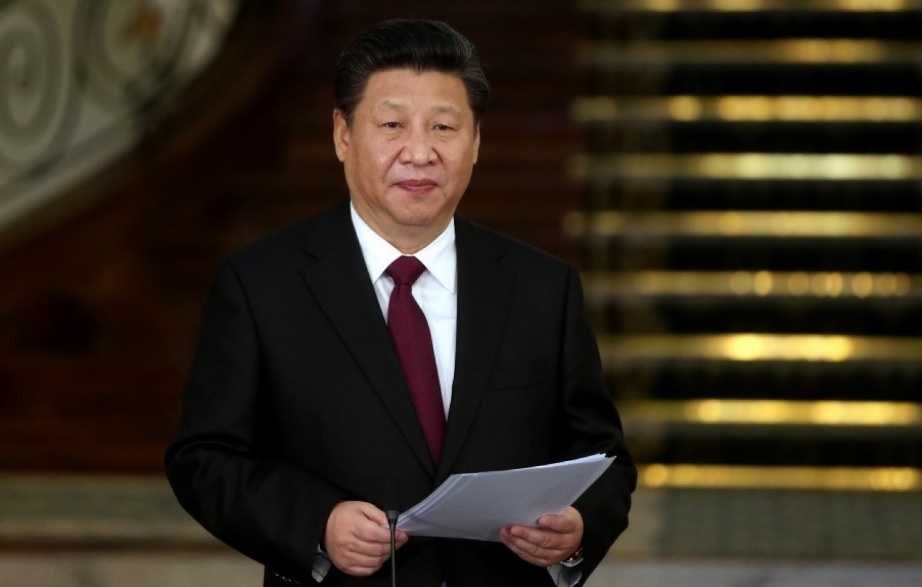
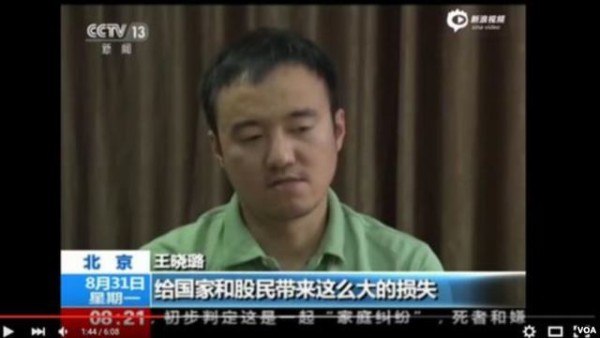 Sex Male
Sex Male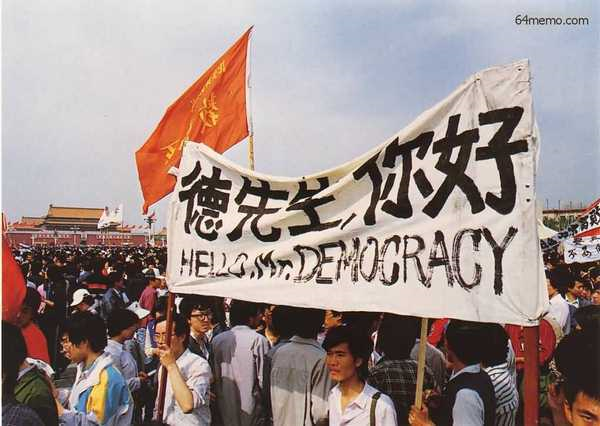 “The brazen cynicism and lack of courage of the governments of democratic countries have been deeply disheartening – whether they know it or not, they live in the shadow of June 4, their actions and decisions trapped in the dialectic events that day set in motion.”
“The brazen cynicism and lack of courage of the governments of democratic countries have been deeply disheartening – whether they know it or not, they live in the shadow of June 4, their actions and decisions trapped in the dialectic events that day set in motion.”